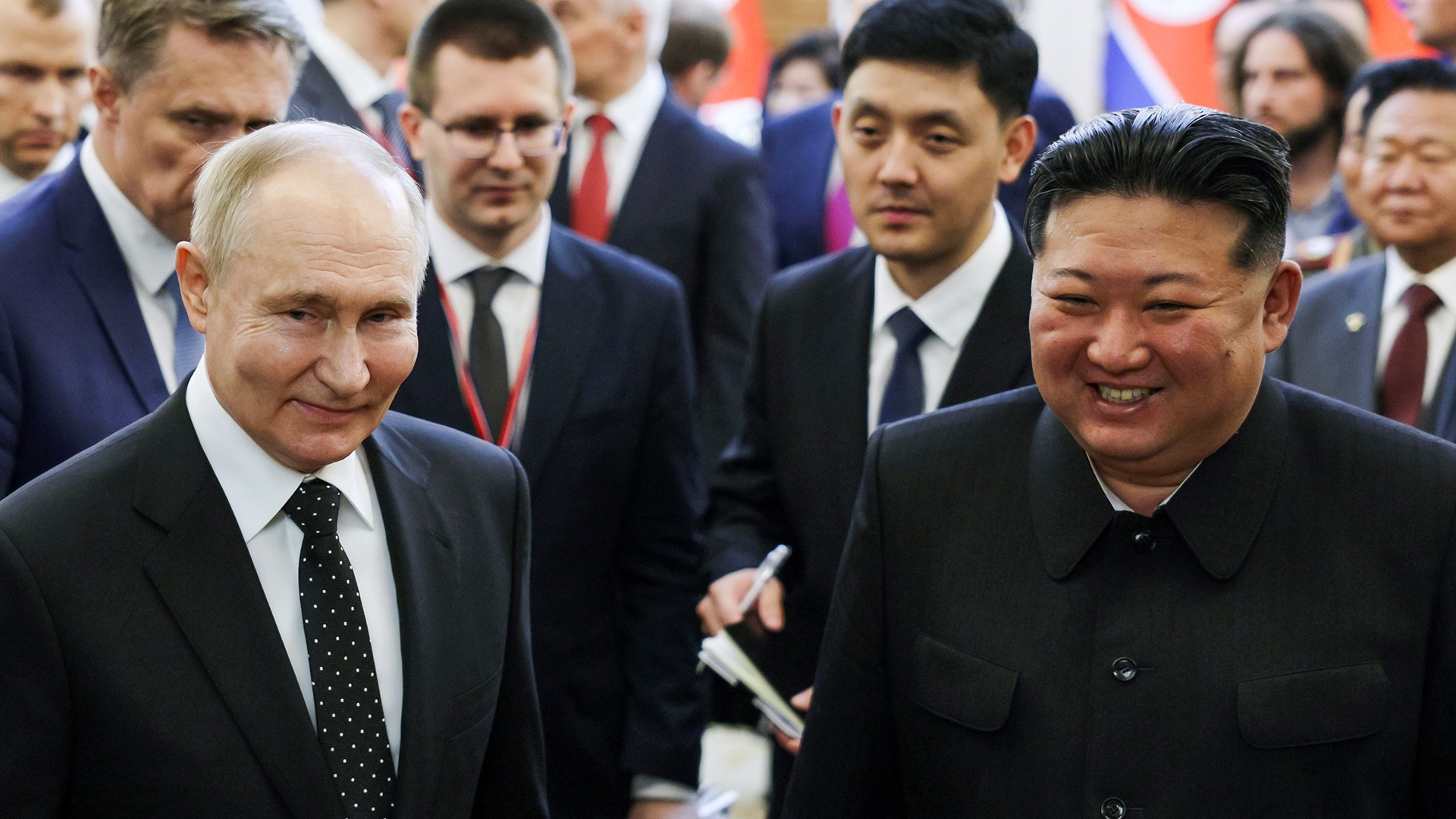President Vladimir Putin of Russia made a deal with North Korea's leaders during his first visit to the country in 24 years, promising to send rapid military help if the other side faced military aggression, according to Reuters.
The pledge is interpreted as the revival of a mutual defence pact under a Cold War-era treaty from 1961 that was revoked in 1990 when the Soviet Union established diplomatic relations with South Korea.
In recent years, Moscow has made some of its most prominent gestures in Asia with the agreement for a "comprehensive strategic partnership" that North Korean leader Kim Jong Un and Russian President Vladimir Putin signed on Wednesday.
"If either side faces an armed invasion and is in a state of war, the other side will immediately use all available means to provide military and other assistance by Article 51 of the UN Charter and the laws of each country," the agreement's 4th article says.
Article 51 of the United Nations Charter guarantees a member state the right to act in self-defence, either individually or collectively.
As the United States and its Asian allies become increasingly concerned about Russia's potential backing for North Korea, the only nation to test a nuclear weapon this century, the leaders of the two countries—which are facing rising international isolation—promised to back the North Korean government.
Kim repeated Putin's declaration, in which he made a clear connection between their strengthening relationship and opposing the "hegemonic and imperialist" policies of the West, and the US in particular—including US support for Ukraine.
According to KCNA, the agreement also said that neither party would permit its territory to be exploited by any nation to undermine the security and sovereignty of the other, nor would it permit either party to sign any deal with a third party that violates the interests of the other.
According to the statement, the two nations would work together to "strengthen defence capabilities to prevent war and ensure regional and international peace and security."
The White House and South Korea refrained from commenting right away on the agreement's purported terms.
Putin's promise to explore collaboration with Pyongyang on weapons technology has caused Japan to express "grave concerns."
Growing military collaboration between Russia and North Korea has alarmed Washington and Seoul, which have accused the two of breaking international law by exchanging weapons for Moscow's conflict against Ukraine. According to Ukrainian officials, they have discovered missile debris from North Korea inside their borders.
Any arms trade is denied by North Korea and Russia.
Putin congratulated Kim for supporting Russian policy during his first visit to Pyongyang since 2000, and Kim reaffirmed his "unconditional" and steadfast support for "all of Russia's policies," including Putin's war with Ukraine.
The agreement's complete language was made public by KCNA on Thursday. It includes cooperation in the areas of nuclear energy, space exploration, and food and energy security.
The mutual defence commitment is comparable to that found in the 1961 pact between the North and the Soviet Union, according to Cha Du Hyeogn, a former official in the South Korean administration and current fellow at the Asan Institute for Policy Studies in Seoul.
It's unclear if the pact could be compared to an alliance because of the vague allusions to the UN Charter and national laws, he said.
"It comes from Kim wanting to put everything in for this agreement, while Putin is being reluctant to do so," Cha said.



























